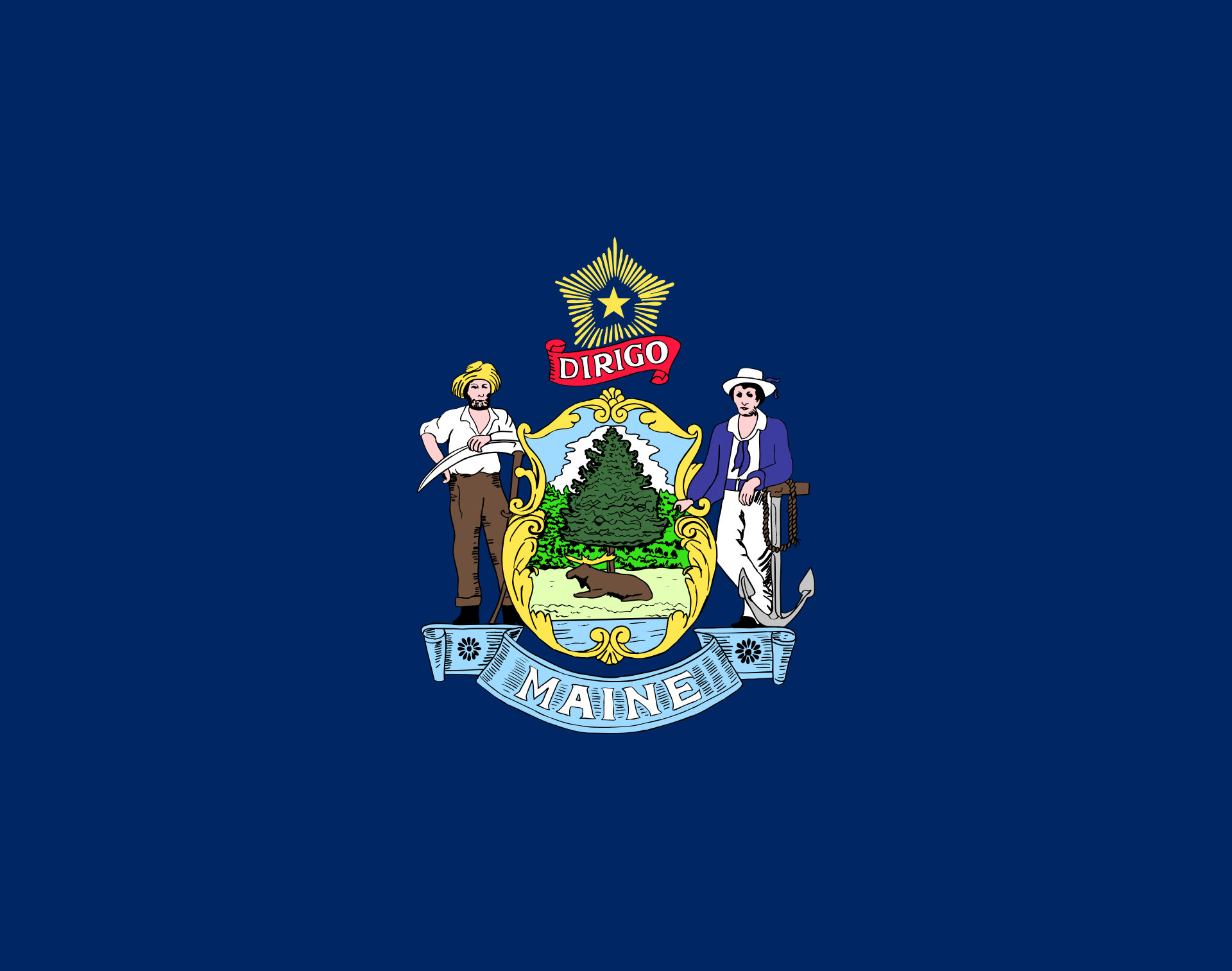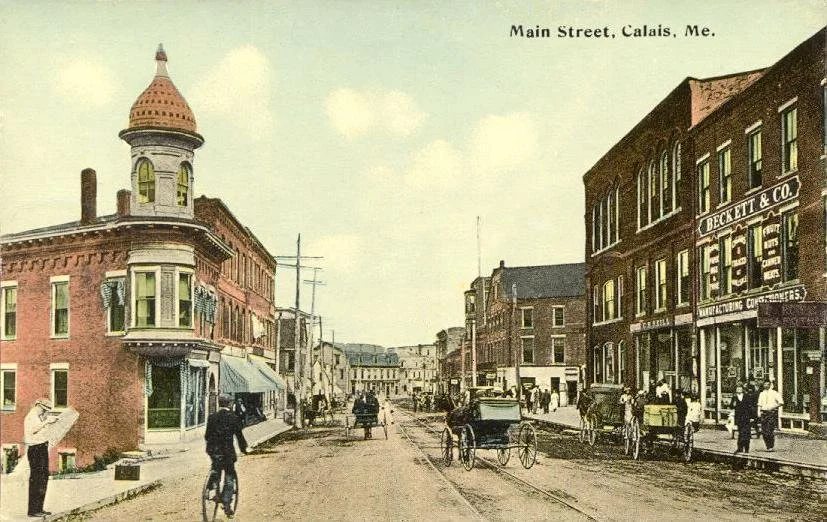‘Inflexibly territorial’
1913 postcard of the way Downeast community.
Cutler, Maine, harbor.
“Many small towns I know in Maine are as tight-knit and interdependent as those I associate with rural communities in India or China; with deep roots and old loyalties, skeptical of authority, they are proud and inflexibly territorial.”
– Paul Theroux (born 1941), famed travel writer and novelist
Squeeze out some more
Looking toward Calais, Maine, across the St. Croix River from St. Stephen, New Brunswick
“In Maine, there is a deeply ingrained sense that you can always get a little more use out of something.’’
— Tim Sample (born 1951), in Maine Oddities, Curiosities and Roadside Attractions, longtime New England regional humorist
He lives in Calais, Maine, far Downeast.
On June 16, 1809, Plantation Number 5 PS was incorporated as Calais, named after Calais, France, in honor of French help during the American Revolution. The St. Croix River provided the mill town with water power for sawmills, clapboard and shingle mills, two planing mills, a saw factory, two axe factories and four grain mills! There were foundries, machine shops, granite works, shoe factories and a tannery. Other businesses produced bricks, bedsteads, brooms, carriages and plaster. Not bad for a community that now has only about 3,100 people! There’s still a lot of fishing in the area but most of the other industry is long gone.
Calais and the neighboring Canadian town of St. Stephen have long been remarkably friendly. Consider that during the War of 1812, the British military provided St. Stephen with a lot of gunpowder for protection against the enemy Americans across the St. Croix River in Calais, but St. Stephen's town elders gave the gunpowder to Calais for its Fourth of July celebrations.
Calais hosted the first railroad built in Maine, the Calais Railroad, incorporated by the state legislature on February 17, 1832 and built to transport lumber from a mill on the St. Croix River.
Main Street in Calais in 1913 — more prosperous than now
1908 postcard. Note the lumber being transported.
—






